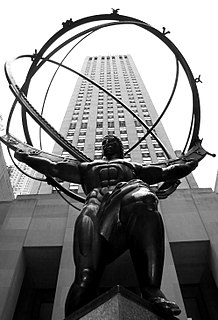A Quote by Gaspar Noe
If you just open your dictionary, "morality" is the sense that separates good from evil. And if you really want to see what evil is, it just says that "evil is the opposite of good." And if you ask "Then what is good?" it says that it's the opposite of evil.
Related Quotes
In the story of the Creation we read: ". . . And behold, it was very good." But, in the passage where Moses reproves Israel, the verse says: "See, I have set before thee this day life and good, and death and evil." Where did the evil come from? Evil too is good. It is the lowest rung of perfect goodness. If you do good deeds, even evil will become good; but if you sin, evil will really become evil.
When one has once accepted and absorbed Evil, it no longer demands the unfitness of the means. The ulterior motives with which youabsorb and assimilate Evil are not your own but those of Evil.... Evil is whatever distracts. Evil knows of the Good, but Good does not know of Evil. Knowledge of oneself is something only Evil has. One means that Evil has is the dialogue.... One cannot pay Evil in installments--and one always keeps on trying to.
Whoever has the power to label others as evil is automatically, or reflexively, the good person. Good people label bad people as evil. And once you do that, then it demonizes them. You don't negotiate with evil. You don't sit down at the table with the devil and say, "Okay, let's work this out." What you want to do is destroy evil. Every Catholic kid every night says, or should say, "Lead us not into temptation, deliver us from evil." And so you've got to go to God to help you deal with evil rather than your State Department or your negotiators.
This is a world of good and evil. Wherever there is good, evil follows, but beyond and behind all these manifestations, all these contradictions, the Vedanta finds out that Unity. It says, "Give up what is evil and give up what is good." What remains then? Behind good and evil stands something which is yours, the real you, beyond every evil, and beyond every good too, and it is that which is manifesting itself as good and bad. Know that first, and then and then alone you will be a true optimist, and not before; for then you will be able to control everything.
I think of moral beauty as what is the good and the just - terms perhaps best defined by their opposite: evil. Evil is the willingness to do damage to the other; its maximal expression is murder, but it includes a great deal of subtle and not-so-subtle injuries as it advances to that extreme. Evil acts reduce the other to an object, a being to its component parts, and obliterate subjectivity. Evil's breeding ground is a lack of empathy.
When anything is in the presence of evil, but is not as yet evil, the presence of good arouses the desire of good in that thing; but the presence of evil, which makes a thing evil, takes away the desire and friendship of the good; for that which was once both good and evil has now become evil only, and the good has no friendship with evil.
Evil denotes the lack of good. Not every absence of good is an evil, for absence may be taken either in a purely negative or in aprivative sense. Mere negation does not display the character of evil, otherwise nonexistents would be evil and moreover, a thing would be evil for not possessing the goodness of something else, which would mean that man is bad for not having the strength of a lion or the speed of a wild goat. But what is evil is privation; in this sense blindness means the privation of sight.
For the first time in history, the rational and the good are fully armed in the battle against evil. Here we finally find the answer to our paradox; now we can understand the nature of the social power held by evil. Ultimately, the evil, the irrational, truly has no power. The evil men’s control of morality is transient; it lives on borrowed time made possible only by the errors of the good. In time, as more honest men grasp the truth, evil’s stranglehold will be easily broken.






































